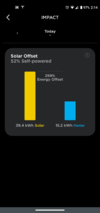Reviving this thread for 2021. After much research about mini-splits, geothermal, and variable speed air-to-air heat pumps, we finally settled on an interesting option I hadn't heard anyone else mention.
Today we just had a Bosch BOVA 2.0 inverter ducted split system installed. Product information here:
Inverter Ducted Split System (IDS 2.0) | Air-to-Air Heat Pump Systems | Heat Pump Systems | Products | Residential
It's a really fascinating device. My HVAC tech said it's basically mini-split technology applied to a ducted system. Really quiet at 56 dB. SEER 20.5. Inverter-driven variable speed fans on both the condenser and the air handler. And most interesting, it's variable speed without the need for a special thermostat or running new lines for signalling. From my understanding, the heat pump control board just monitors the pressure of the coolant coming back from the air handler, and from there it can tell how much heating/cooling is needed. And likewise the air handler monitors the pressure coming from the condenser and adjusts the fan speed accordingly. So my Ecobee controls it as if it's a single stage device. It's also meant to operate down to -5 F! I'll be surprised if my resistive heat ever turns on again.
3 ton system installed for just over $10k.




